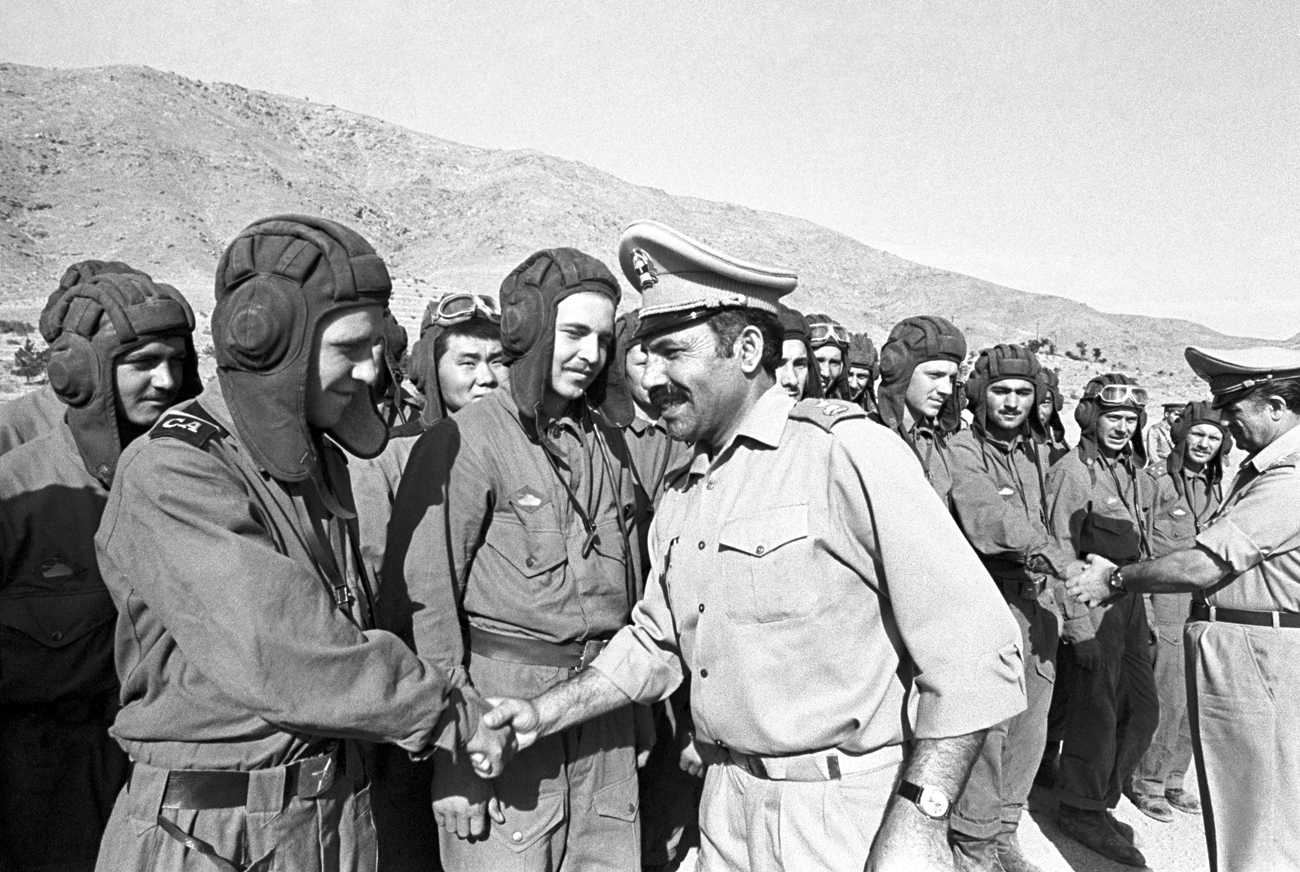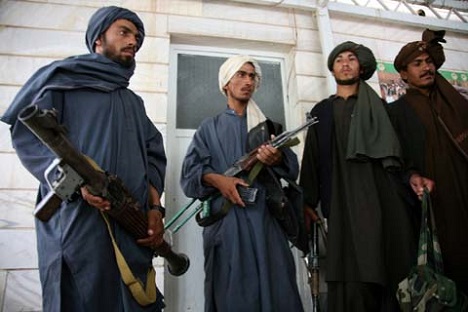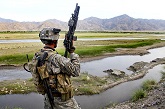How the Soviet Union got involved: Key facts about the Afghan War

Soviet and Afghan soldiers’ farewell in 1980.
Georgy Nadezhdin/TASSThe contingent
There was no Afghan War. A limited contingent of Soviet troops went into Afghanistan. It is crucial to recall that the Soviet troops entered Afghanistan at the invitation of the Afghan government. There were, in fact, around two dozen invitations. The decision to send in troops was not an easy one but, nevertheless, it was approved by the members of the CPSU Politburo on December 12, 1979. The Soviet Union had been drawn into the conflict.
A brief search on “who benefited from this” clearly indicates that it was, first of all, the United States. Nobody today even tries to hide the Anglo-Saxon footprint on the Afghan conflict. Memoirs of former CIA Director Robert Gates state that on July 3, 1979, US President Jimmy Carter signed a secret presidential order authorizing the funding of anti-government forces in Afghanistan, and Zbigniew Brzezinski said bluntly; “We have not pushed the Russian to intervene, but we knowingly increased the probability that they would do so.”
The Afghan axis
Afghanistan, in geopolitical terms, is an axial point. Throughout its history, wars have been fought over Afghanistan, either open conflicts or diplomatic ones. The Russian and British Empires fought for control of Afghanistan since the 19th century, in manoeuvres called “The Great Game”. The Afghan conflict from 1979-1989 was part of that “game”. Riots and uprisings in the “underbelly” of the USSR could not remain ignored for long. Losing the Afghanistan axis was not an option. Also, Leonid Brezhnev was then eager to create an image of himself as a peacemaker. And he did.
On sport, and the world
The Afghan conflict “accidentally” led to a major protest wave around the world, strongly fueled by the “friendly” media. ‘Voice of America’ radio stations began daily broadcasts with military reports. All means were used to ensure people would not forget that the Soviet Union was leading an “aggressive” war on someone else’s territory.
The 1980 Olympics were boycotted by many countries (including the USA). The Anglo-Saxon propaganda machine was working at full tilt, creating an image of the USSR as the aggressor. The Afghan conflict was very helpful with the switching of poles – till the end of the 1970s, the USSR enjoyed immense popularity worldwide. The US boycott of the Olympics did not remain unanswered. Soviet athletes did not go to the 1984 Olympics in Los Angeles.
The whole world
The Afghan conflict was Afghan in name only. It was actually playing out the favorite Anglo-Saxon combination of forcing their enemies to fight each other. The US authorized “economic assistance” to the Afghan opposition to the amount of $15 million, as well as military aid – supplying them with heavy weapons and providing military training to Afghan mujahedeen groups. The US did not even conceal its interest in this conflict. The third sequel of the epic movie “Rambo” was filmed in 1988. The hero, Sylvester Stallone, this time was seen fighting in Afghanistan. This ludicrous, open propaganda film even received the “Golden Raspberry” and got into the Guinness Book of Records as the film with the highest amount of violence – the film contains 221 scenes of violence and the killing of 108 people. At the end of the film, the credits stated – “This film is dedicated to the valiant people of Afghanistan”.
Oil
The role of the Afghan conflict can hardly be overestimated. The USSR was spending about $2-3 billion on it each year. The Soviet Union could easily afford this, seeing that oil prices were at an all-time high in the years 1979-1980. However, oil prices declined drastically in the period from November 1980 to June 1986! This fall was not accidental. A special “thank you” was also owed to Gorbachev’s anti-alcohol campaign. The “financial cushion”, in the form of revenues from the sale of vodka in the domestic market was no longer there. The USSR, by inertia, continued to spend money on creating a positive image of itself but inside the country, the revenues were ending – the USSR was in an economic collapse.
Dissonance
During the Afghan conflict, the country found itself in a kind of cognitive dissonance. On the one hand, everyone knew about “Afghanistan”, on the other – the USSR painfully tried to “live better and happier”. With the 1980 Olympics and the 12th World Festival of Youth and Students – the Soviet Union celebrated and rejoiced. Meanwhile, as KGB General Philipp Bobkov later testified: “Long before the opening of the festival, specially selected Afghan militants were being trained in Pakistan, by serious professionals from the CIA, and one year before the festival, they were sent into the country. They settled in the city, especially since they were provided with money, where they waited to receive explosives, plastic bombs and weapons, preparing to set them off in crowded places (Luzhniki, Manezh Square, and other places). These actions were thwarted, thanks to the undertaken operative measures.”
The Afghan syndrome
In the words of the hero of the “Rambo” movie – “The war is not over”. We all know about the “Afghan syndrome”, about the thousands of broken lives, about veterans returning from war, useless and forgotten. The Afghan conflict created a cultural layer of the “forgotten and betrayed soldier”.
This image was atypical in Russian tradition. The Afghan conflict undermined the morale of the Russian Army. It was then that the “white tickets” (persons exempted from military service) began to appear. The war inspired horror, scary legends were spread about it, soldiers were sent there as punishment for misdeeds, hazing, which has become the scourge of the modern army, flourished. In those years, the military profession ceased to be attractive, although earlier, every second soldier wanted to be an officer.
The “Echo of Afghanistan” is heard loudly even today.
First published in Russian by Russkaya Semyorka.
All rights reserved by Rossiyskaya Gazeta.
Subscribe
to our newsletter!
Get the week's best stories straight to your inbox

